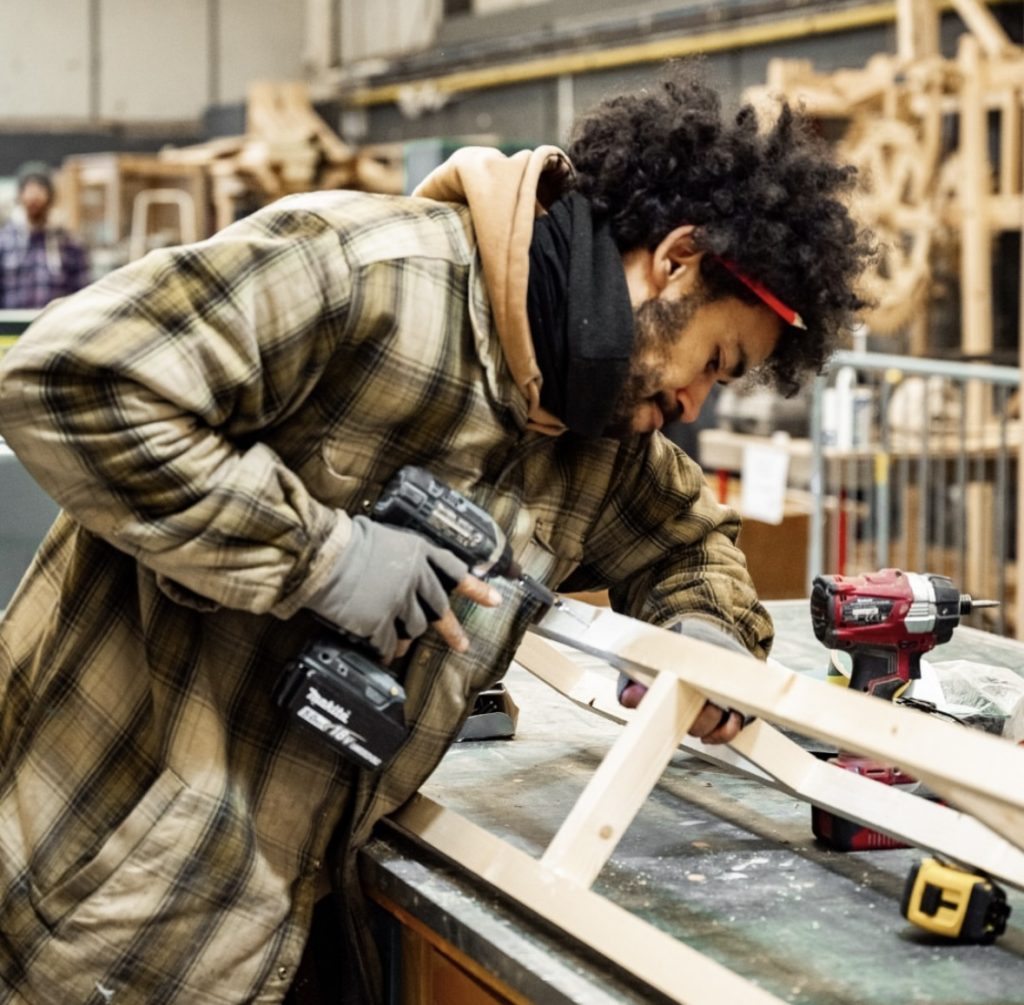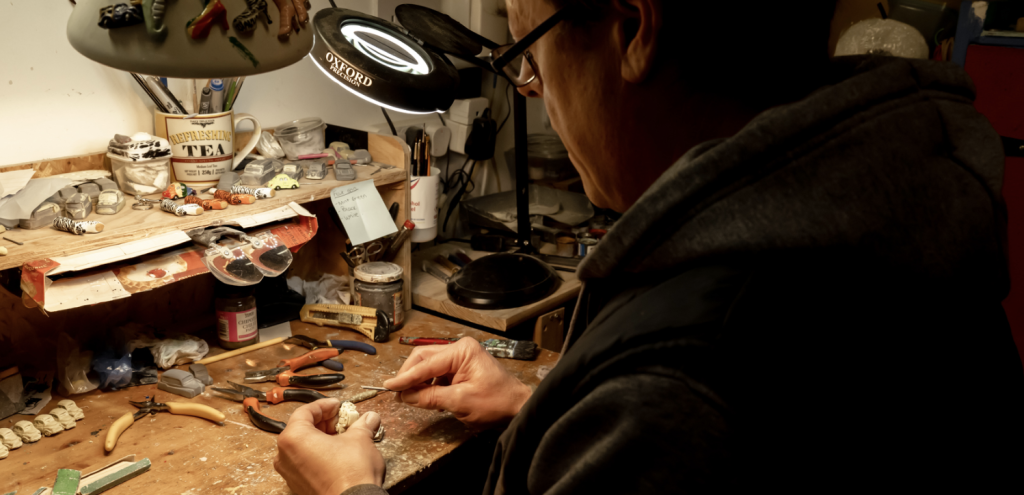Make is home to over 130 makers across Liverpool City Region with spaces in Birkenhead, Liverpool’s North Docks and Huyton Village. It provides a place for makers, creatives, independent businesses and social enterprises to ‘turn their passion to prosperity’, with flexible space alongside support.
The ‘Made by Make’ programme commissions work from local artists to create installations for clients nationwide. This supports Make and its community, creating jobs for a hyperlocal workforce, feeding social businesses in the supply chains of larger organisations, encouraging collaboration and reusing materials. Recently, Make purchased its first building, moving from a meanwhile space to a permanent home in Birkenhead.
Socially-trading organisations (STOs) operate in a financial landscape where property-related costs vastly outweigh revenue. For example, Make turns over approx. £500k annually, and the purchase of its Birkenhead building cost £2m to develop. With an average annual surplus of just £10k, it would take 200 years to accumulate enough reserves for the project. This makes social investment crucial.

Make’s priority is accessibility through affordability. Raising rent contradicts its social mission, so instead it leverages external funding to cover its annual deficit of approximately £100k. Nonetheless, demand for space is overwhelming, with three times more requests than availability. Owning property unlocks more favourable lending terms, but securing long-term finance is complex.
Ownership isn’t just about stability for Make – it changes perceptions within financial markets. Kindred’s interest-free, patient loan is an exception, as traditional lenders scrutinise organisations without assets, making borrowing more expensive and sustainability harder to achieve. A revolving credit facility with Key Fund has already improved Make’s position, but greater asset ownership would make operations significantly cheaper – and create more impact.
Without ownership, ageing properties become liabilities rather than assets, draining revenue through maintenance costs. Long-term viability depends on securing structural investment, but without assets, STOs struggle to access it. This issue didn’t matter five years ago, but as Make scales, it has become critical.
Make’s model differs from traditional business because it doesn’t generate large surpluses. In the social economy, risk is defined by the inability to generate profit rather than the ability to pay back loans – this structural issue limits access to money.

The goal is to replicate Make’s Birkenhead model with new projects, including securing ownership of Make Huyton. Currently operating under a short-term peppercorn lease with the council, Make must now demonstrate demand to attract public funding and buy the property. The investment required – £3-£4m – is relatively small in government terms and could be acquired through grants and strategic financing.
Make plans to expand using the ‘wash, rinse, repeat’ model it’s demonstrated in Birkenhead, moving from temporary to permanent spaces. Its approach is based on turning evidence into action – demonstrating demand and using that data to secure funding. A key opportunity lies in the North Docks creative cluster, where Make can collaborate with similar organisations to optimise production, performance and experimentation spaces. By working with partners who have complimentary strengths, Make’ can grow strategically rather than duplicating current facilities.
A similar opportunity exists in Huyton, where it currently operates a temporary space. Make already has more financial security than most arts organisations, yet the sector is known for its short-termism. It plans to break this cycle by building a model that fosters long-term sustainability rather than rapid but fragile expansion.